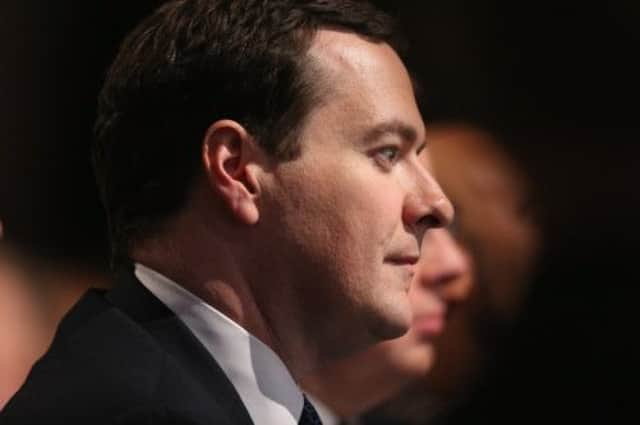Service sector growth provides shot in the arm for Chancellor


The reading of 60 in the closely-watched Markit/Cips purchasing managers’ index (PMI) was well ahead of the 50 level that separates growth from contraction.
Although an easing on the previous month’s 16-year record of 62.5, survey compiler Markit said it represented another strong month for a sector which accounts for some three-quarters of UK output.
Advertisement
Hide AdAdvertisement
Hide AdThe group’s chief economist, Chris Williamson, said it handed Chancellor George Osborne more good news ahead of today’s autumn statement.
He said: “The survey continues to signal an impressively strong pace of expansion and one of the best performances for the sector we’ve seen since data were first collected in 1996.”
Adding the services survey to those for manufacturing and construction – released earlier this week – Markit said its research indicated GDP growth of 1 per cent in the fourth quarter.
Job creation in services is also surging and should sustain the upturn through improved consumer confidence and spending, Markit added.
Backlogs of work increased for an eighth successive month and is likely to encourage firms to continue adding to their workforces. However, there were signs of price pressures beginning to build, with input cost inflation at a nine-month high.
Commerzbank economist Peter Dixon said: “A correction appeared to be likely given the excessive jump in October. The service sector may have lost a little bit of momentum but 60 is still a decent number. The economy still has momentum.”
Osborne was today expected to announce the biggest upgrade to official growth forecasts in a decade when he makes his twice-yearly budget statement to Parliament.
However, the Chancellor is likely to stick to his austerity programme, despite concerns over weak wage growth and muted business investment.